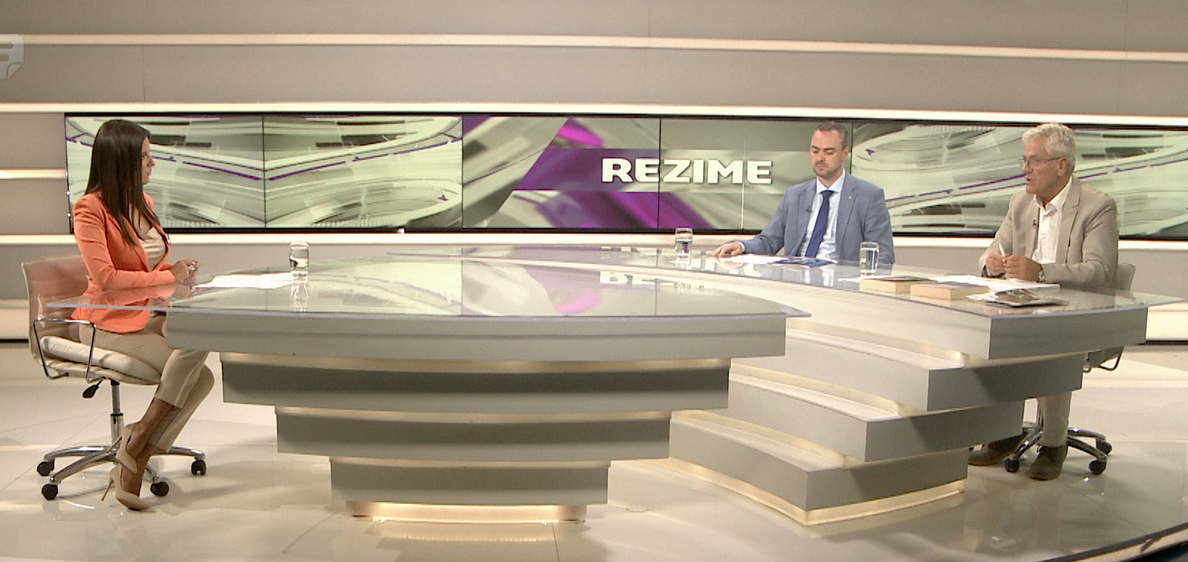Some tiller cannot bring life back to Srebrenica, systemic and economic development is needed - a return to what Srebrenica used to be. Rasim Muratović, director of the Institute for Researching Crimes Against Humanity and International Law at the University of Sarajevo, pointed this out in the Rezime show.
"Reconciliation is the key word. What happened in Srebrenica, it was not a neighborly dispute. It was an organized genocide. Now the question is what happens after that. That phase is academically finished. Now we are moving to the economic part, experts suggest is to create a special status for Srebrenica, based on the Brčko District. This enables overcoming all the problems we have had in the past 28 years," he said.
He added that the reconstruction of the population is taking place most difficult in Srebrenica.
"There are no people there. According to the 1991 census, there were 36,000 inhabitants. In 2013, there were 16,000. Now it is estimated that there are between 6 and 7 thousand people. Another economic factor is related to that. 28 years later, all that was done in an economic sense, at least the study shows, is wrong. Somewhere around 2,000 people from Srebrenica are employed. It was focused on the wrong branches. Before the genocide, mining, industry, construction, etc. were developed there. After 1995, the focus there is on agriculture and fishing Srebrenica is now perhaps the last municipality in terms of development in BiH".
There is no stability in either the demographic or the economic sense, says Muratović. In Srebrenica, you have neither a baker, nor a shoemaker, nor a barber, but you have five betting shops.
In the post-war period, there is no strategic approach towards the Bosnian sub-region, especially towards Srebrenica and its surroundings, and two are to blame for that, according to Sedad Bešlija, director of the Institute of History at the University of Sarajevo.
"The international community can solve certain problems with its decisions in 24 hours if it wants to. Here, they want to maintain a frozen, unsettled state, and the people who live in this area want to turn into second-class citizens. On the other hand, domestic political actors, their reintegrationist policy has collapsed. The issue of Podrinje is the issue of the future of Bosnia and Herzegovina, the one for which we all stand, European, democratic. It is necessary to have a complete change of the political paradigm".
Beshlija notes that reconciliation cannot be brought about by pauses. "It must happen between peoples. The whole of Europe exists in the coexistence of diversity. Bosnia and Herzegovina is an example of that. We must return to those positions," he is categorical.
When it comes to the Second International Scientific Conference "Consequences of the Bosniak Genocide in Srebrenica: Social, Economic, Political, Demographic and Cultural Development of Srebrenica (1995-2022)" which will be held tomorrow at the Potočari Memorial Center, Muratović points out that the report that will be presented worryingly.
"Over the past 30 years, our Institute has published 150 editions of books, one-third of which relate to Srebrenica. We have also organized dozens of conferences, more than half of which are about Srebrenica. In 2020, the City Council agreed to organize this kind of event every two years conference. The research teams worked for two years, they made their studies. The demographic panel talks about the consequences of the genocide against Bosniaks in Srebrenica. A damage assessment commission was never formed at the level of the state of BiH or at the local level, while good work was done with the collection of remains As for the material devastation, a state commission was never formed."
Bešlija reminds that the academic community has defined three key points around which socio-political factors should gather.
"The most important thing at this moment is to stop the denial of the genocide. Unfortunately, even after our conference, we have another, more recent dimension that is more brutal in nature - from denial in the public space to the glorification and cursing of the genocide. In the past three years, we have had only one reaction from the Office of the High Representative, which amended the Criminal Code. We are waiting to see on the ground concrete moves by our institutions towards those who still deny the genocide in BiH. The second measure, the special social development status of the Bosnian Podrinje, the third measure is to work on international activities to affirm the culture of memory in Europe and the world. This is the recommendation of the academic community," emphasizes Bešlija.
Watch the guest appearance in its entirety at this link.
Source: federalna.ba
